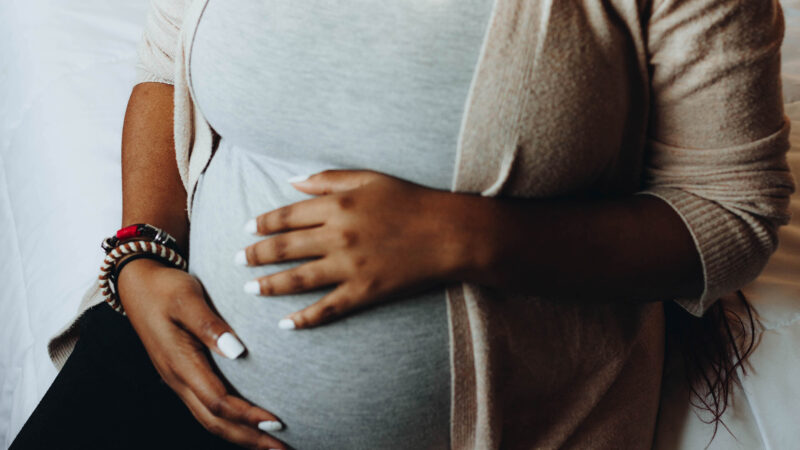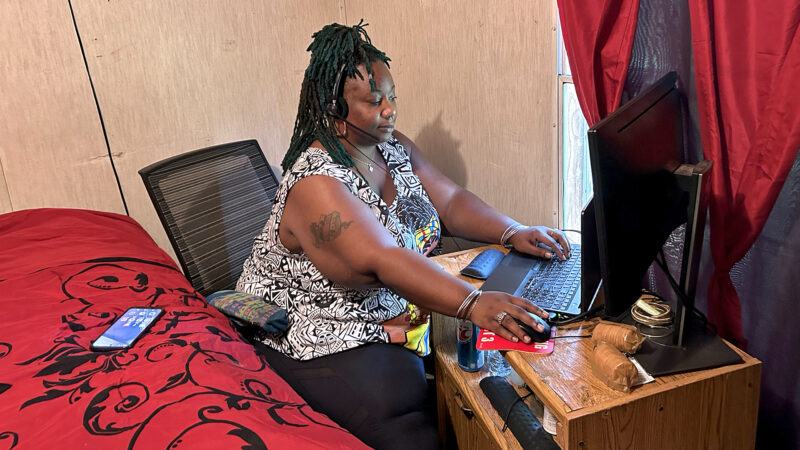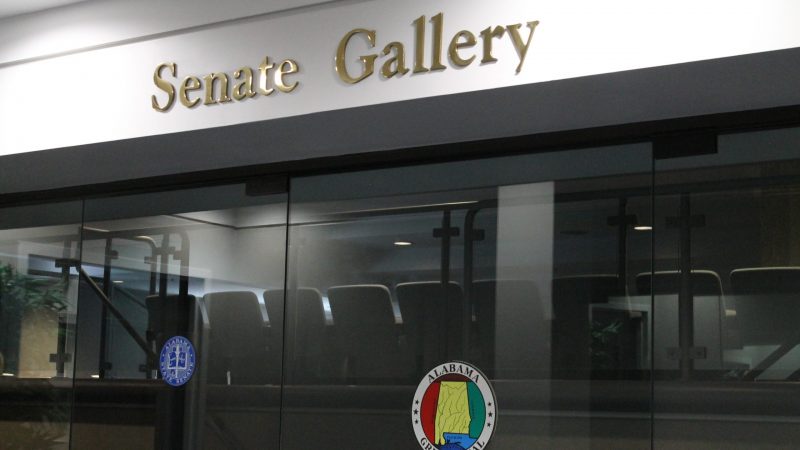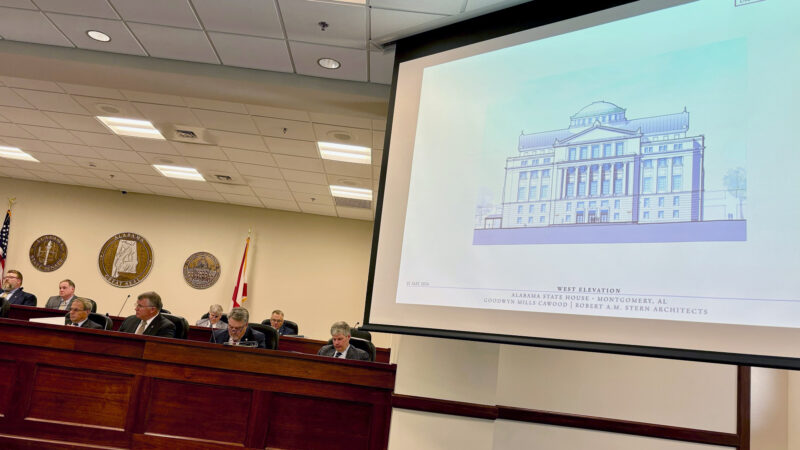Alabama’s health care system for women ranks near the bottom of this new scorecard
In this stock image, a pregnant Black woman holds her stomach. The Commonwealth Fund's annual scorecard ranks the Gulf States near the bottom of the list when it comes to women's health care.
The Commonwealth Fund has a new category in its annual scorecard of state health systems — reproductive and women’s health care.
The scorecard looks deeper at 12 new measures that evaluate and rank states on maternal and pregnancy-related outcomes, as well as women’s access to reproductive services and other care.
Mississippi, Alabama and Louisiana rank near the bottom in the report — released June 22 — with marked increases in preventable deaths, high uninsured rates and more preterm births across all three states.
Maternal deaths nearly doubled between 2018 and 2021 and the COVID-19 pandemic played a big role. The increase was especially high among Black and Indigenous mothers already impacted by poverty and poor access to maternal health care.
Louisiana, which ranked 38th out of the 50 states and the District of Columbia, saw an increase in its maternal morbidity rate between 2018 and 2020, and it did not improve in any of the key areas researchers examined.
In Alabama, which ranked 43rd, the infant mortality rate remained higher than the U.S. average but the state did improve its access to prenatal care.
Mississippi ranked second to last in reproductive and women’s health, with worsening rates of death for women of reproductive age, postpartum medical visits, and deaths from preventable and treatable causes. Mississippi also continues to have the highest rate of infant mortality in the country.
The report uses data from before and after Roe v. Wade was overturned, and notes that most of the states that ranked lowest in reproductive care and women’s health have some of the strictest abortion bans. These states — including Alabama, Mississippi and Louisiana have fewer maternity care providers, and more women of color and their babies are dying.
The researchers recommended that states can work to improve poor reproductive outcomes, suggesting policies like extending postpartum Medicaid, funding community-based organizations and more.
You can read the full scorecard report here.
This story was produced by the Gulf States Newsroom, a collaboration between Mississippi Public Broadcasting, WBHM in Alabama, WWNOand WRKF in Louisiana and NPR. Support for reproductive health coverage comes from The Commonwealth Fund, but the news and the business departments operate independently.
Alabama to begin working with a consulting company that’s under criminal investigation
McKinsey & Company, an international consulting business, will help the state of Alabama develop a new strategic economic growth plan. The company is undertaking that project, while also dealing with a probe into whether it engaged in a criminal conspiracy.
‘Stupidity of politics’: Medicaid expansion effort dies in Mississippi
Mississippi lawmakers couldn’t come together to pass a bill that could have expanded Medicaid for thousands of residents.
This spiky-stemmed invasive grass is taking over Alabama
Classified as one of the worst weeds in the world, cogongrass aggressively crowds out native species and costs Alabama landowners tens of millions of dollars in lost revenue.
Gambling bill in doubt with three days left in the legislative session
Alabama lawmakers are coming down to the finish line for this year’s legislative session. Many bills await passage, but perhaps the biggest one up in the air is a lottery and gambling bill.
Pro-Palestinian demonstration draws counter-protest at University of Alabama
Students gathered demanding the school call for a permanent and immediate ceasefire and to push the school to sever ties with defense contractor Lockheed Martin.
A new Statehouse and related projects will cost about $400 million
The Alabama Legislative Council, a 20-member panel comprised of legislative leaders and their appointees, approved the construction of the new Statehouse last year. The panel was given an update on the project on Wednesday.








